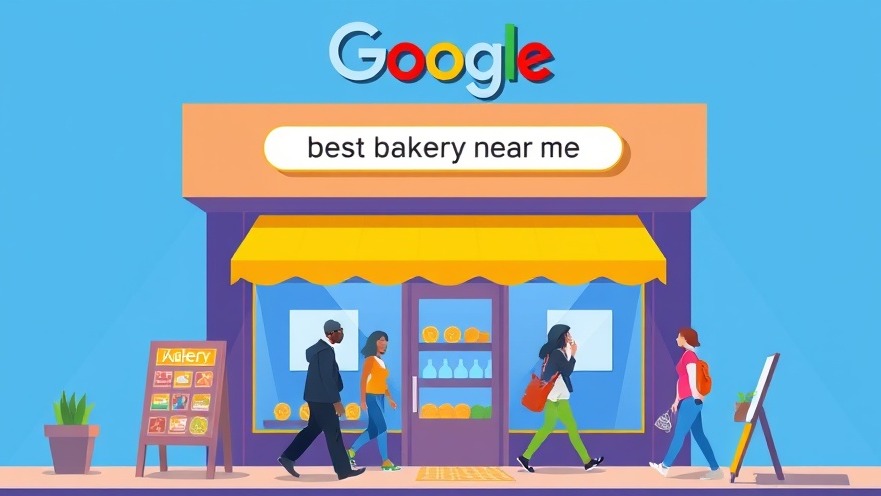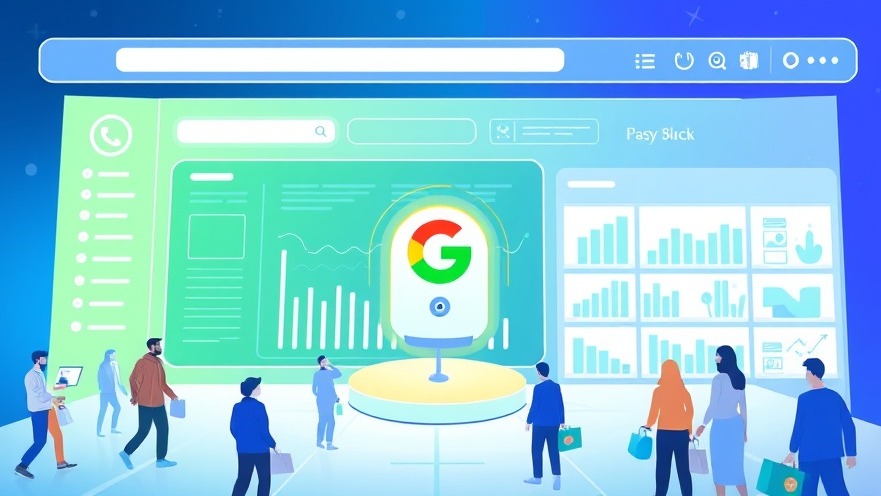With the fast changes in digital marketing, where every click and every search holds immense potential, there's a silent threat that could be sabotaging your efforts without you even realizing it: keyword cannibalization. Imagine pouring your heart and soul into creating amazing content, only to have it fight against itself for attention on Google. It's like having two of your best employees competing for the same promotion instead of working together to achieve a common goal. But don't worry, this isn't a problem without a solution. In fact, understanding and fixing keyword cannibalization can be your secret weapon to truly dominate search results and bring in a flood of new customers.
Key Takeaways
Keyword cannibalization hurts your rankings: When multiple pages on your website target the same keywords, search engines get confused about which page is most important, causing all of them to rank lower.
It's more than just repeating keywords: Things like having different paths to the same product or not redirecting old pages can also cause this problem.
You can fix it: By aligning your SEO strategy, checking your site, auditing and merging pages, using the right tools, focusing on topics, examining historical rankings, and creating comprehensive pages, you can avoid this issue.
Experts can help: Don't feel overwhelmed! SEO marketing experts can handle the heavy lifting, allowing you to focus on running your business.
Action-driven content wins: Learn to create content that inspires your audience to say "YES" and take action, leading to higher conversions and real business growth.

Stop Competing With Yourself: Your Path to Google Dominance Starts Now!
Have you ever wondered why some businesses seem to effortlessly appear at the top of Google searches, while others, despite their best efforts, remain hidden on page two (which, in the world of online search, is practically like being invisible)? Often, the answer isn't a lack of effort, but a common but sneaky problem called keyword cannibalization.
Think of it this way: You have a fantastic restaurant that serves the best pizza in town. Now, imagine you put up two identical signs outside your restaurant, both saying "Best Pizza Here!" Which sign should people follow? Which one is the "official" one? It's confusing, right? Google faces a similar dilemma when multiple pages on your website are all trying to rank for the exact same keywords.
Keyword cannibalization happens when several pages on your website are all fighting to be the top result for the same search terms. Because Google (or Bing, DuckDuckGo, or any other search engine) can't figure out which page is truly the most important or relevant, it might decide to rank none of them very highly. This means your great content gets buried, and potential customers never even see it.
It's not just about using the same words over and over, either. Sometimes, it's more subtle. For example, if you have two slightly different pages selling the same type of product, like "men's t-shirts" and "men's long-sleeve t-shirts," and someone searches for "men's shirts," Google might get confused and show neither page prominently. Or, if you update an old blog post but don't tell Google that the old one is now superseded by the new, improved version, both might end up competing. These seemingly small missteps can silently hinder your website's ability to shine in search results.
"The best way to predict the future is to create it." – Peter Drucker
Real-Life Keyword Cannibalism in Action
Let’s bring this to life with a couple of easy-to-understand examples:
Example 1: The Auto Body Shop's Brake Battle
Imagine Maria owns a successful auto body repair shop. She’s smart and knows that blogging can bring in new customers. So, she decides to write articles about common car problems.
One month, she writes a fantastic blog post titled “Common Brake Problems You Shouldn't Ignore,” focusing on issues like squeaking and grinding. A few months later, wanting to cover more ground, she publishes another article called “Top 5 Brake Issues Every Driver Should Know.”
Now, when someone searches for “why are my brakes making noise?” or “brakes not working,” Google sees two articles from Maria’s shop that seem to be about the same thing. Google gets confused! Which article is better? Which one should it show? Because of this confusion, both articles might end up ranking lower than they deserve – perhaps even landing on page two of search results. And as we know, page two is where search results go to die!
Example 2: The Online Clothing Store's T-Shirt Troubles
Consider David, who runs an online clothing store. He has a page dedicated to “Men’s T-Shirts” and another very similar page for “Men’s Long-Sleeve T-Shirts.”
When a customer searches for a general term like “men’s shirts,” Google might struggle to decide whether the "Men's T-Shirts" page or the "Men's Long-Sleeve T-Shirts" page is more relevant. This indecision can lead to neither page ranking well, causing David to miss out on potential sales. He's essentially competing against himself for the same customer!
Your Launchpad to Content Greatness: How to Stop Competing with Yourself
Now that we understand the problem, let's talk about the powerful solutions. These strategies will help you not only avoid keyword cannibalization but also boost your overall presence online, leading to more leads and happy customers.
-
Align Your SEO Strategy to Avoid Keyword Overuse
Think of your SEO strategy as a symphony, where every instrument (or keyword) has its own unique part to play. It’s not about making a lot of noise with the same note repeatedly (keyword stuffing!), or constantly playing the same tune. Repeating "brake problems" over and over won't get you to the top of Google. Instead, imagine each blog post or page having its own special "star" keyword.
How to do it:
Be a Keyword Detective: Use tools like Google Keyword Planner (it’s free!), Ahrefs, or Semrush to find out exactly what people are typing into Google when they look for information related to your business. For example, instead of just "brake problems," you might find "car brake repair cost," "squeaky brakes fix," or "best brake pads for my car." These are called long-tail keywords – they are longer and more specific, and they often show what a person truly wants.
Map Your Keywords: Think of this as a blueprint for your content. Decide which main keyword each page or blog post will focus on. This helps you avoid overlap and ensures each piece of content serves a unique purpose.
Space it Out: If you do have similar topics, try to publish them at different times and phrase the keywords differently. For instance, if you wrote about "common brake problems" this month, next time you talk about brakes, focus on something distinct like "how long do brake pads last?"
Focus on Benefits, Not Just Features:
Instead of: "Our car detailing service uses a 5-step cleaning process."
Try: "Imagine driving a car that feels brand new, sparkling inside and out, making every commute a pleasure."
-
Check Your Site Before Creating New Content
Before you rush to create a brand-new article, take a quick peek at what you already have! It's a simple step that many businesses miss.
How to do it:
Be a Digital Archivist: Have you already written about "brake issues" or "brake repair"? If so, maybe it's time to explore new topics like "how to choose the right tires" or "the importance of regular oil changes."
Use Visibility Tools: Tools like Ahrefs or Semrush can show you how well your existing pages are performing. If you have an older post that’s doing okay but not great, and you have new information to add, consider updating that existing post instead of creating a whole new one. This keeps all the "power" of that topic in one place.
-
Audit Your Site and Delete or Merge Overlapping Pages
Sometimes, you might find old pages that are just "okay" in search results, or even outright duplicates. Don't be afraid to clean house!
How to do it:
Re-optimize: If an old page is relevant but not performing well, give it a makeover! Update the information, add fresh keywords, and make it more engaging.
Delete or Merge: If you have two pages that are nearly identical in content and purpose, choose the one that's performing better (or has more potential) and delete the other, or better yet, merge their content together. When you delete a page, make sure to set up a 301 redirect – this tells Google, "Hey, that old page moved, so send everyone to this new, better one!" It's like changing your address and leaving a forwarding notice for the mail.
-
Use the Right Tools to Identify Cannibalization
You don't have to manually comb through every page of your website. There are powerful tools that can do the heavy lifting for you!
How to do it:
Leverage Ahrefs and Semrush: These are like your personal SEO detectives. They can flag instances of keyword cannibalization, show you which keywords your pages are ranking for, and provide tons of other insights to help you avoid internal competition and improve your content's quality.
-
Focus on Topics First, Then Keywords
This is a big one! Sometimes, we get so caught up in keywords that we forget why people are searching in the first place. Are you writing for robots or for actual human beings?
How to do it:
Think Like Your Customer: What problems are they trying to solve? What questions do they have? Start with broad topics that your audience genuinely cares about. If you run a pet store, instead of just thinking "dog food keywords," think about topics like "how to choose the best food for a new puppy" or "what to feed an older dog with sensitive digestion."
Match Search Intent: People search for different reasons. Some want to learn ("informational intent"), some want to buy ("transactional intent"), and some are looking for a specific website ("navigational intent"). Make sure your content matches what the searcher is truly looking for. For example, if someone searches "best running shoes," they're probably looking to buy, so a product comparison page would be better than a "history of running shoes" article.
Use Emotional Triggers:
Appeal to desires: success, recognition, financial freedom.
Example: "Picture yourself finally getting that promotion, confidently presenting your ideas, and becoming the recognized expert in your field."
-
Examine Historical Rankings
Your past performance can tell you a lot about where keyword cannibalization might be happening.
How to do it:
Dig into Data: Using those same SEO tools (Ahrefs, Semrush), look at the historical rankings for your keywords. If you notice several of your pages popping up for the same keyword, especially if none of them are ranking really well, it’s a big red flag that cannibalization is happening.
Take Action: If these pages are serving the same purpose, either combine them into one super-comprehensive page or pick the best one and redirect the others to it. This concentrates the "ranking power" into a single, strong page.
-
Remove Host Clustering
This sounds technical, but it’s quite simple. Imagine your website content is organized into neat "topic clusters," where a main "pillar" page covers a big idea (like "All About SEO") and smaller "supporting" pages dig into specific parts of that idea (like "How AI Affects SEO" or "Keyword Cannibalization"). They are all connected by helpful links.
How to do it:
Use Advanced Search: You can actually do this directly in Google! If you search for your main keyword and then add
-site:yourdomain.com(replacingyourdomain.comwith your actual website), you can see what other websites are ranking for that term. This helps you understand if you're competing too much with yourself.
-
Create Comprehensive Pages
Instead of writing many small, similar articles, aim to create one really amazing, in-depth article that covers a broad topic from many angles.
How to do it:
Be the Ultimate Guide: If SEO is your topic, don't just write "What is SEO?" every year. Instead, create a massive "Ultimate Guide to SEO" that covers the basics, then link out to more specific articles on "how AI affects SEO," "how to judge your SEO score," and yes, "keyword cannibalization." This makes your main page a powerful resource and ensures each sub-topic has its own dedicated space.
Create a Sense of Urgency:
Limited-time offers or exclusive opportunities drive action.
Example: "Our exclusive content strategy workshop has only 5 spots left – will you be the one to unlock your business's true online potential?"

See How Digital Marketing All Can Drive More Traffic to Your Website
You've learned about the silent killer of SEO, keyword cannibalization, and how to stop it. But this is just one piece of the puzzle! To truly dominate your market and bring in a flood of new customers, you need a comprehensive digital marketing strategy.
Brand Voice Strategy: Let our team help you create your unique brand voice to attract your ideal customer. Imagine your business speaking directly to the hearts and minds of your perfect clients, building a connection that turns strangers into loyal advocates.
Market Growth Opp Research: Let our team show you where you can gain additional traffic that you are missing. Picture uncovering hidden goldmines of potential customers, areas where your competitors aren't even looking.
Local SEO: Unlock more SEO traffic. See real results. Dominate your local market. Imagine your business being the first one people see when they search for services in your area, becoming the go-to choice for local customers.
Dominate Google: Let us get your company to the top of Google. Envision your website consistently appearing at the very top of search results, attracting a steady stream of ready-to-buy customers.
Competitive Link Analysis: Know what your competitors are doing. What if you knew exactly what strategies your rivals were using to succeed, allowing you to not just compete, but to surpass them?
Geo-Targeting: Let us find your customers in your desired location. Imagine reaching precisely the right people, in the right neighborhoods, at the exact moment they need your services.
Content Marketing: Our team creates epic content to be shared, generate links, and attract traffic. We know the secret recipe for success. Picture your brand becoming a trusted authority, with content that captivates, educates, and inspires your audience to take action.
Paid Media Advertising: Effective paid strategies with clear ROI. You pay per result with us. Imagine getting immediate, measurable returns on your advertising spend, seeing your investment directly translate into new leads and sales.
Blogging Services: Let us create a blog that will help you rank. Envision your blog posts not just providing information, but actively attracting new customers by ranking high on Google for the terms they search for.
Search Box Optimization: Owning a keyword in your local area is the best way to dominate your local market. Imagine having your business name pop up directly in Google's search suggestions, establishing your brand as the leading expert in your local community.
Search Price Optimization: Not only can you own the keyword in your local area and nationally, but you can control your advertising cost by getting out of the price war that exists in pay-per-click advertising and achieve a higher ROI. Picture a world where you're not constantly outbid by competitors, but instead, your ads are seen more often and for less money, maximizing your profit.
Marketing Consulting: Develop tailored strategies to grow your brand and maximize impact. Book a Call
Work With SEO Marketing Experts
Let’s be honest: doing all of this yourself, while running your business, is a huge task! Unless you have a dedicated team for content marketing and SEO, it can feel overwhelming.
How we help: When you partner with our SEO marketing experts, we can handle all this keyword research, content strategizing, and technical optimization for you. You tell us your business goals and what kind of content you want, and our team of SEO marketers and content writers will turn that into powerful blogs and pages that appeal to both search engines and your audience. This means you can focus on what you do best – running your amazing business!
Frequently Asked Questions About Keyword Cannibalization
You've got questions, we've got answers! Here are some common queries about keyword cannibalization:
-
How much keyword overlap is OK?
A little bit of overlap is perfectly fine, even unavoidable sometimes. The trick is to make sure each page has its own primary keyword it's trying to rank for. Think of it like a team: everyone is working towards the same company goal, but each person has their own specific role. Search engines are pretty smart, but when too many pages are trying to do the exact same job, it gets confusing. Regularly auditing your site and doing good keyword research helps you stay on the right side of the line.
-
Why do search engines "penalize" websites for keyword cannibalization?
It’s not so much a punishment as it is confusion. Search engines aren’t trying to be mean; they just want to give searchers the very best answer to their question. When multiple pages on your site are all saying, "Pick me! No, pick me!", the search engine can’t decide which one is truly the most authoritative or relevant. This dilutes the "power" of all those competing pages, leading to lower rankings for all of them. It's like having five good candidates for one job – it makes it harder to pick the best one, and sometimes, they all get overlooked.
-
What’s the difference between keyword and content cannibalization?
Keyword cannibalization is about multiple pages targeting the same keywords. The content on those pages might be different, but their main goal (in terms of keywords) is the same.
Content cannibalization is a broader issue. It means you have highly similar or even duplicate content across multiple pages, which can confuse both search engines and your readers. This is more about the overall message and information being too similar, not just the keywords.
-
How often should I audit my site?
This depends on how big your website is and how often you add new content. For most businesses, an SEO audit at least once a year is a good idea. If you have a very large site with new content published frequently, or if your industry changes rapidly (like tech or news), you might want to do it more often, perhaps every six months. Regular check-ups help you catch problems before they become big headaches.
Give All Your Pages Their Own Nutritious SEO Meal
Think of each page on your website as a unique plant in your garden. For your garden to truly flourish, each plant needs its own specific type of soil, sunlight, and water to grow strong. If you give every plant the exact same "meal" and cram them all into the same small pot, none of them will reach their full potential.
The same goes for your website. Consistently creating new and original content that has a unique focus and its own "nutritious SEO meal" is challenging, but the rewards are immense. When you master this, you'll see your website consistently appear on people’s screens, attracting new leads and customers. This isn't just about ranking; it's about building a strong, visible, and profitable online presence that thrives in any economy.
I hope you enjoy reading this blog post. If you want to be our next success story, have my team do your marketing. Click here to book a call!
 Add Row
Add Row  Add
Add 








Write A Comment